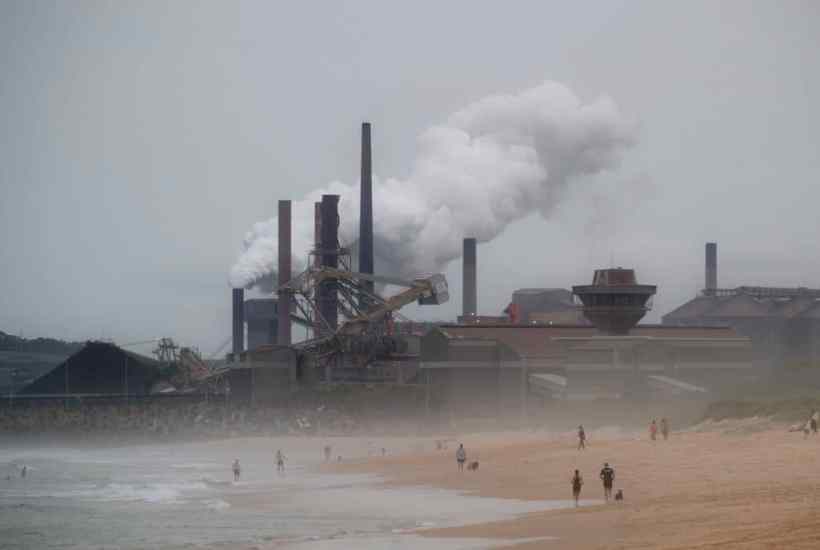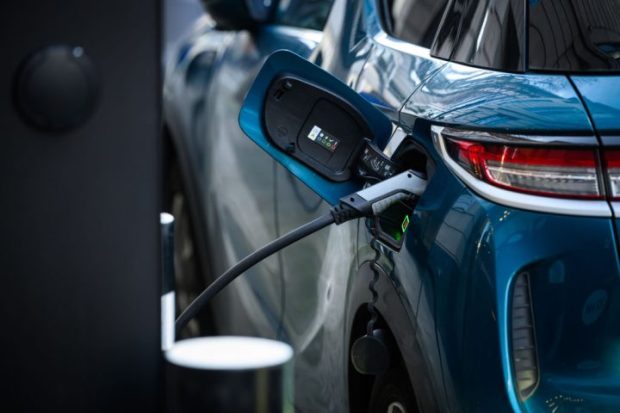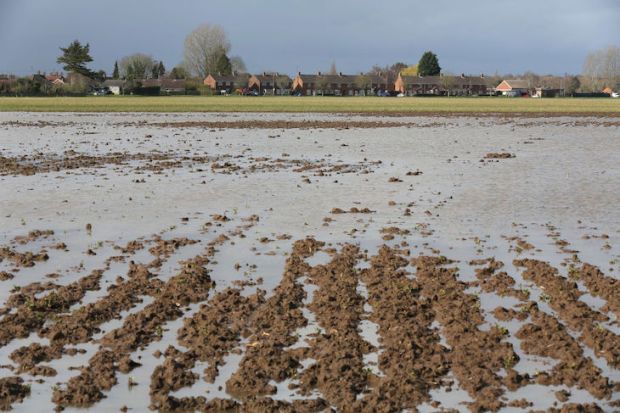For anyone tempted to believe warnings from Mark Carney and other City figures about ‘stranded assets’ in the fossil fuel industry, while simultaneously buying the idea that renewable energy is the investment which can’t go wrong, here is a cautionary tale. Just over a year ago the mining giant Anglo American demerged its thermal coal division into a new company, Thungela Resources. At the time it seemed to some a bit like Northern Rock being divided into a ‘good bank’ and a ‘bad bank’. Here was a chance for Anglo American to cleanse its image by disposing of the nasty, climate-unfriendly part of its operation – the bit which many saw as doomed – and perhaps avoid some of the protests and legal actions which environmental campaign groups have been waging against fossil fuel businesses.
Analysts were not enthusiastic about the prospects for the new company. Boatman Capital – which specialises in identifying targets for short-sellers and which had previously attracted scorn by publishing a critical report on military outsourcing company Babcock International, although that report did foresee problems at the company – published a report valuing Thungela Resources at precisely zero. The company’s environmental liabilities, it estimated, could be three times as great as the value of the company itself. Taking Boatman’s lead, others shunned Thungela Resources too. In June 2021 the Investor’s Chronicleadvised its readers (many of whom had been allocated the shares by virtue of holdings in Anglo American) to sell their holdings at 156 pence.
A case of getting out just in time before pledges to eliminate carbon emissions – then coming in thick and fast in the lead-up to the Cop26 climate conference in Glasgow – stranded the world’s coal mines for good? Not quite. Thungela Resources turned out to be just about the best investment you could have made in the summer of 2021. It has just reported profits of £485 million, up from £17 million last year. Its share price has rocketed to 1470 pence, a 500 per cent rise in 12 months and nearly ten times the price it was when the Investor’s Chronicle told readers to sell up. Even at this price, the stock is still yielding over 6 per cent. To be fair, not every broker advised selling – Liberium Capital put a ‘buy’ rating on it in in August last year – although its target price for the stock, 305 pence, has turned out to be somewhat pessimistic.
One day, Thungela Resources may well be valueless as the world moves onto cleaner energy. I can’t say I or many others, save perhaps for Arthur Scargill, would mourn the day the world’s last coal-fired power station closed its furnaces. Britain is already due to remove coal from the national grid by 2024. But in the meantime, coal has had a bumper year thanks to the shortage of gas. Many countries, such as Germany, have had to turn back to the fuel as gas supplies from Russia have diminished. Moreover, many developing countries which do not have gas reserves remain and will remain dependent on coal for many years, even decades, to come.
The story of Thungela Resources over the past year is a caution against falling for the prevailing City narrative that promises of net zero are quickly going to sweep away the fossil fuel business and that renewables are where the easy money is to be made. Had you sold your Thungela Resources shares last year you might, for example, have thought of reinvesting the money in Orsted, the former Danish Oil and Gas Company which has positioned itself and rebranded itself as a renewable energy company. But alas, your investment would have slipped 15 per cent as Orsted warned of lower profits thanks to disappointing wind speeds.
In case you are wondering, no, I don’t and have never owned shares in Thungela Resources and so I have not shared in the bonanza. Given that I frequently write on climate and energy issues and am constantly under the watch of climate activists I made the decision not to invest in oil, gas or coal companies so that no one could claim I was in any way ‘in the pay’ of the fossil fuel business.
Got something to add? Join the discussion and comment below.
Get 10 issues for just $10
Subscribe to The Spectator Australia today for the next 10 magazine issues, plus full online access, for just $10.





















Comments
Don't miss out
Join the conversation with other Spectator Australia readers. Subscribe to leave a comment.
SUBSCRIBEAlready a subscriber? Log in